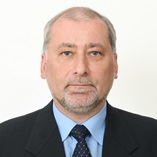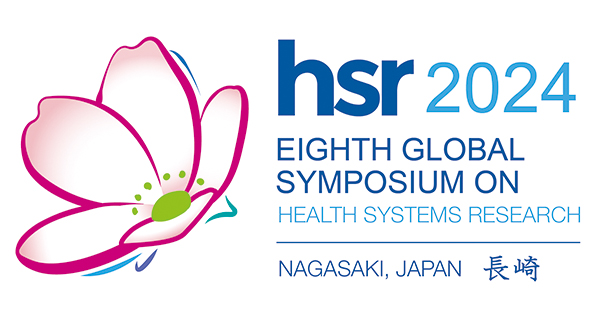Vladimir Saenko 准教授

専門・研究テーマ・キーワード
腫瘍生物学、ゲノム医科学、 疫学、予防医学担当課程
博士前期課程専任教員博士後期課程専任教員取得学位・資格
More than a 30-year experience and hands-on a broad variety of molecular laboratory techniques and instrumentations, experimental design and data analysis, laboratory management, instructorship and supervision.
個人/所属ウェブページ
http://www-sdc.med.nagasaki-u.ac.jp/dhrc/index-e.html
ResearchGateアカウント
https://www.researchgate.net/profile/Vladimir_Saenko
他所属
Department of Radiation Molecular Epidemiology, Atomic Bomb Disease Institute, Nagasaki University
経歴
学歴 1995/01–1996/11, Postdoctoral Research Associate, Department of Microbiology and Immunology, Albert Einstein College of Medicine, Bronx, NY, USA1994/06, PhD (biochemistry and immunology), Rostov State Medical Institute, Rostov-on-Don, Russia1981/09–1987/02, M.S. [equivalent] in chemical engineering of biologically active substances, Lomonosov Institute of Fine Chemical Technology, Moscow, Russia 職歴
- 2012/06–present, Associate Professor, Department of Radiation Molecular Epidemiology Atomic Bomb Disease Institute, Nagasaki University
- 2011/04–2012/06, Assistant professor, Department of Health Risk Control, Atomic Bomb Disease Institute, Nagasaki University Graduate School of Biomedical Sciences
- 2002/04–2011/03, Assistant professor, Department of International Health and Radiation Research, Nagasaki University School of Medicine
- 2000/05–2002/03, Visiting Professor, Department of International Health and Radiation Research, Nagasaki University School of Medicine
- 1997/05–2000/04, Senior Scientist Molecular Biology division (Head), Department of Pathology, Medical Radiological research Center of RAMS, Obninsk, Russia
- 1991/06–1997/04, Scientist, Department of Radiation Biochemistry, Medical Radiological research Center of RAMS, Obninsk, Russia
- 1987/03–1991/05, Junior Scientist, Department of Radiation Biochemistry, Medical Radiological Research Center of RAMS, Obninsk, Russia
教育活動
- 2013 – present, “Radiation and thyroid cancer” (medical student course), Fukushima Medical University
- 2006 – 2014, “Molecular Biology, Gene expression, Genomics and Biotechnology” (foreign student course), Nagasaki University
- 2003 – 2012, “Basics of Molecular Biology” (medical student course) Nagasaki University
研究活動
Thyroid carcinogenesis, molecular carcinogenesis, radiation-induced carcinogenesis, molecular epidemiology, molecular diagnostics, radiation and cancer epidemiology, radiation biology, human genetics, molecular pathology. An author and coauthor of 117 peer reviewed articles, 2 books, 9 book chapters, 23 Professional societies’ publications, peer review service to 19 international journals, Member of Editorial board in 2 journals.
現在の主な研究活動地域
日本
最近の5つの出版物
- Yamashita S, Suzuki S, Suzuki S, Shimura H, Saenko V. Lessons from Fukushima: Latest Findings of Thyroid Cancer after the Fukushima Nuclear Power Plant Accident. Thyroid. 2018; 28(1):11-22.
- Bogdanova TI, Saenko V, Hirokawa M, Ito M, Zurnadzhy LY, Hayashi T, Rogounovitch TI, Miyauchi A, Tronko MD, Yamashita S. Comparative histopathological analysis of sporadic pediatric papillary thyroid carcinoma from Japan and Ukraine. Endocrine Journal. 2017; 64(10):977-993.
- Matsuse M, Yabuta T, Saenko V, Hirokawa M, Nishihara E, Suzuki K, Yamashita S, Miyauchi A, Mitsutake N. TERT promoter mutations and Ki-67 labeling index as a prognostic marker of papillary thyroid carcinomas: combination of two independent factors. Scientific Reports. 2017;7:41752.
- Nikitski A, Rogounovitch T, Bychkov A, Takahashi M, Yoshiura K, Mitsutake N, Kawaguchi T, Matsuse M, Drozd V, Demidchik Yu, Nishihara E, Hirokawa M, Miyauchi A, Rubanovich A, Matsuda F, Yamashita S, Saenko V. Genotype analyses in the Japanese and Belarusian populations reveal independent effects of rs965513 and rs1867277 but do not support the role of FOXE1 polyalanine tract length in conferring risk for papillary thyroid carcinoma. Thyroid. 2017; 27(2):224-235.
- Takamura N, Orita M, Saenko V, Yamashita S, Nagataki S, Demidchik Yu. Radiation and risk of thyroid cancer: Fukushima and Chernobyl. Lancet Diabetes Endocrinol. 2016; 4(8):647.
メッセージ
We are aimed at designing and conducting laboratory and epidemiological research into the contribution of inherited genetic variations and somatic genetic alterations to the etiology of human cancer and non-cancer diseases, particularly focusing on populations exposed to radiation in Chernobyl, Kazakhstan and Japan to improve public health through gaining new insights into gene-environmental interactions.

